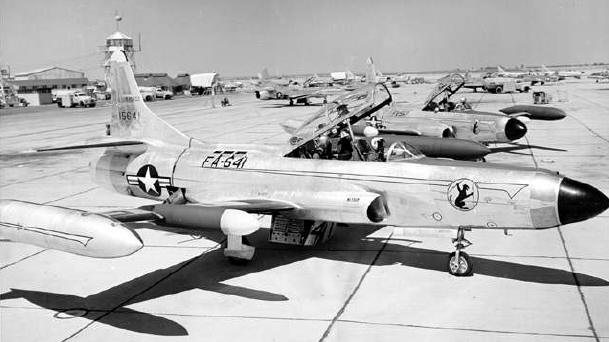|
|
|

|
The two-place F-94 was this nation's
first operational jet all-weather interceptor. It was developed
from the single-seat F-80
Shooting Star which had been the Army Air Forces' first
operational jet aircraft procured in significant quantities.
Although the F-94 had a redesigned fuselage, it used the F-80
tail, wing, and landing gear. The Starfire was also the first
U.S. production jet to have an afterburner, which provided brief
periods of additional engine thrust. It was equipped with radar
in the nose to permit the observer in the rear seat to locate an
enemy aircraft at night or in poor weather. The pilot then flew
the Starfire into proper position for an attack based upon the
observer's radar indications. The F-94s were primarily deployed for the defense of the United
States in the early 1950s, serving with Air Defense Command
squadrons. Many Air National Guard units were later equipped
with F-94s.
Lockheed produced 853 F-94s for the Air Force, beginning in
December 1949. Of these, 110 were F-94As and 355 were F-94Bs.
|
|
